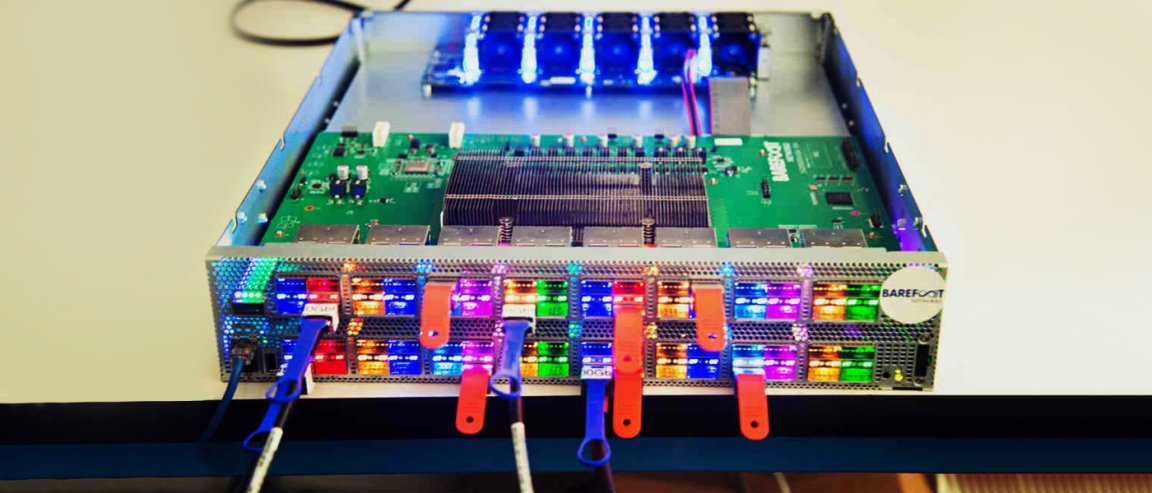
Handing the Keys
New chips that increase computing power are a dime a dozen. But one kind of chip isn’t getting much love? Networking chips, those that reside in hardware called “switches.”
But now, a new startup called Barefoot is creating a new type of networking chip that may make some waves, as it can offer something few others do: Owners can program the chip themselves. This means anyone has the ability to write and rewrite software that runs the chip and change what the chip does.
The chips, called Tofino, are set to arrive at the end of the year. Barefoot says they will be twice as fast as any other currently on the market, processing network packets at a rate of 6.5 terabits per second.
Its main strength—programmability—is achieved by the use of the P4 language, an open source language that Barefoot used to program the chips. By being open source, P4 allows anyone to change its programs, or design chips for themselves.
And Barefoot is not stopping at open sourcing Tofino. It also plan to open source designs for network switches that use Tofino, so that truly anybody can build their own custom networks.

Transforming the Industry
While Tofino allows unprecedented flexibility for networking nerds, it also gives that flexibility to big companies like Google or Facebook. With their increasing bandwidth demands from newly developed products, it is not surprising that these companies are looking for breakthroughs in networking hardware.
Previously, they had the option for redesigning switches, but not the chips that run these switches. They had control, but not complete control. With Tofino, these companies can now leverage both their own technical know-how and the networking specifics they need to produce chips and switches that meet their exact needs.
Southern-California-based Broadcom controls about 90 percent of the $600 million per year market in Ethernet switch chips. Barefoot’s new chip is expected to eat at this market dominance, not by much, but enough to diversify the field.